每日观察:关注俄罗斯手机游戏市场形势等消息(12.6)
1)据pocketgamer报道,Nevosoft工作室业务开发总监Julia Lebedeva在日前巴黎Game Connection Europe大会上发言表示,开发者进入海外市场时要学会入乡随俗,了解当地规则,这样才能取得较好的市场反应。
她称俄罗斯App Store排名前列的游戏日常收益可能只是美国App Store的十分之一,但俄罗斯当前应用市场规模也达到3.3亿美元,智能手机数量从2012年的1230万台增长至2013年的1740万台,平板电脑则是600万台。
据App Annie数据显示,俄罗斯每年应用下载量排名第五,应用收益也排名第六——其排名超过了德国。
Lebedeva表示开发者进入俄罗斯市场的最大障碍在于当地用户并不讲英语,除了要将英语翻译成俄语之外,开发者还要注意俄语句子长度一般是英语的1.5倍,并且易于产生各类GUI问题,这意味着开发者需要本地技术支持。无论能否解决问题,俄罗斯人都很喜欢抱怨,因为开发者需要针对该国玩家推出全天候的客服支持。
她还提到,俄罗斯人并不太信任收费的东西,并且会认为收费的开发者不是好人,因此用户评价对这一市场的影响甚为关键。并且精明的俄罗斯人一般也不会阅读头几个用户评论,因为他们知道这是开发者的托儿,他们会直接拖动屏幕阅读最底下的其他用户评论。
但俄罗斯仍是一个潜力巨大的市场,预计到2016年该国游戏玩家将达6500万,并且全球俄语市场用户已经达到2.5亿人。
2)Tapjoy最近发布数据显示,从2013年Android操作系统版本来看,Gingerbread(2.3版本)的ARPU(每用户平均收益)最高,其水平超过了Jelly Bean。
Gingerbread发布于2010年,ARPU值为1.6美元,比2012年上升了40美分。而Jelly Bean(4.1-4.3版本)的ARPU则已降至1.57美元;Ice Cream Sandwich(4.0版本,发布于2011年)的ARPU则是1.37美元。
从这组数据来看,在最新版操作系统KitKat(4.4版本)即将发布之际,Android开发者将面临该针对哪一版本开发、测试和QA的艰难选择。
与苹果用户经常更新iOS版本的习惯不同的是,Android用户通常在更新软件这一点上更为滞后,尽管KitKat将通过降低整体系统需求(兼容低端Android设备)来改进这一情况,但Tapjoy指出KitKat将仅覆盖Nexus 5设备,尚无登陆更多Android设备的计划,因此Android开发者对于是否要采用KitKat这一点上仍然要谨慎。
3)据serkantoto报道,King日前在日本投放《Candy Crush》电视广告,成为首家在日本投放手机游戏电视广告的外国手游公司。其广告针对日本玩家定制,前两支广告的代言人是日本女演员Mikako Tabe,主要在周末播放。
该游戏进入日本市场已有一段时间,但由于本土化效果不佳,缺乏当地的King工作人员,以及诸多手机益智游戏的激烈竞争而受到制约,但本次电视广告效果却颇为乐观,App Annie数据显示该游戏目前已经晋升为日本iPhone免费游戏榜单之首。
不过在iPhone收益榜单上,该游戏仅位列第15名;在Android免费下载榜单上,《Candy Crush》从11月30日的第83名跃升至12月4日的第23名;在Anroid收益榜单上,该游戏排名却有所下降。
观察者认为,目前值得关注的并非该游戏在榜单的排名波动,而是King是否仍将持续大规模推广这款游戏,要知道其竞争对手《Puzzle & Dragons》已经连续数月在日本投放电视广告。
4)Omnico最近发布的调查结果显示,54%智能手机网购用户会通过移动设备购买书籍、DVD和游戏产品,53%会购买电影票,44%购买电子产品和配件,仅有12%购买食品。
42%受访者通过智能手机搜索服装产品,57%搜索电子产品,并且会在购买之前比较价格和阅读评论。
5)据《华尔街日报》报道,雅达利不久前提出的偿还部分债务及退出破产状态的计划最近得到了债权人及法院的批准。
如果操作成功,位于美国的雅达利公司(之前为GT Interactive》将准备脱离法国母公司Atari S.A(原名为Infogrames),自立门户成为仅瞄准数字游戏的承办商。
雅达利的这一计划由美国曼哈顿破产法院的James Peck法官所批准,要求该公司向Alden Global Capital偿还380万美元的破产债务,雅达利也承诺在退出破产时将向无担保的债权人支付“总额约175万美元”的补偿。
雅达利在今年夏季的拍卖中成功出售了包括《Total Annihilation》、《Star Control》等一系列资产,其偿还债务的资金也主要来自这部分收入。尽管该公司仍保留了《Test Drive》、《RollerCoaster Tycoon》等一系列资产,失去大量成功IP仍将影响雅达利在数字游戏领域的地位。(本文为游戏邦/gamerboom.com编译,拒绝任何不保留版权的转载,如需转载请联系:游戏邦)
1)Why learning to speak a little French in Paris could help you crack the Russian mobile market
Nevosoft’s Julia Lebedeva on learning local rules
by Keith Andrew
“When you come to Paris, it’s very important that you at least try to speak a little French,” opened Julia Lebedeva, business development director at Nevosoft, during her talk at Game Connection Europe in Paris.
“People always say to me ‘oh, the French are so friendly to you’, and that’s because when I go there, I try to speak just a little bit of French. It doesn’t even matter if you actually can or not – I just use a few set phrases I know to make it appear like I can.”
Why would Lebedeva introduce a talk about cracking the Russian mobile market by talking about Paris?
“Because, when you go abroad – whether for business or vacation – you have to know the rules of the country to feel safe and happy,” she added.
“And that’s the same for the mobile market in Russia. You need to know the local rules.”
Big and small
Daily revenue rates of the top games on the Russian App Store may be only a tenth of the equivalent title in the US Lebedeva revealed, but when you consider the size of the US market, 10 percent is nothing to be sniffed at.
The app market in Russia is currently worth $330 million, Lebedeva said, rising from 12.3 million smartphones in 2012 to 17.4 million in 2013.
Tablets are a little further behind – despite Russians apparently preferring to play games on them over smartphones – but, as Lebedeva stated, “the number of devices will only grow.” As things stand, there are 6 million tablets across the country.
“I think that’s enough to understand that the Russian market is profitable,” added Lebedeva. “Does everyone make money there? No. But the Russian market is not as different to the US market as, say, the Chinese market, so it’s a little easier to make a move on Russia.”
Player problems
Indeed, Russia is #5 when it comes to annual app downloads according to App Annie and #6 in terms of generating revenue – that’s higher than both Germany and Japan.
So, how do you crack the Russian market, and what are the pitfalls?
“It may sound strange to say, but players are the biggest problem in the Russian market – they’re the thing that makes it difficult for people to enter,” continued Lebedeva.
“The most important thing to understand is, not many people in Russia speak English – all media, like movies etc, are all dubbed. There are three phrases in English the average Russian person can speak – ‘London is the capital of Great Britain’, ‘my father is an engineer’ and ‘I have a cat’. That’s it.”
Not only does this mean that it’s important to translate your app into Russian – which can be a problem, given Russian sentences are typically 1.5 times longer than English ones, which can lead to all kinds of GUI problems – but it also means you need native tech support.
“Russians love complaining,” added Lebedeva.
“It doesn’t matter if we can actually solve the problem or not – we just like to complain, we like to bitch. So Russian players need 24/7 support.”
Money matters
Another local trait, Lebedeva claimed, is an unwillingness to trust people who charge for things.
“Russians don’t trust people who want their money,” she concluded. “It doesn’t matter what you charge – they just think ‘if you want my money, you’re bad’. That’s it. That’s why user reviews matter more in Russia than in other countries.
“And they’re smart. They know not to read the first few reviews because they’re by the developer, right? So they scroll right down to the bottom to see what real people say.”
Nevertheless, the opportunity of the Russian market speaks for itself. Figures suggest there will be 65 million Russian gamers by 2016, while the potential Russian-speaking market worldwide is already 250 million strong.(source:pocketgamer)
2)Tale of Android ARPU: Gingerbread edges out Jelly Bean, so what does that mean for KitKat?
by Matthew Diener
New data from Tapjoy reveals that Gingerbread has surpassed Jelly Bean to yield the highest ARPU across Android operation systems in 2013.
The ARPU for Gingerbread (v2.3) – which was initially released in 2010 – shot up to $1.60, up 40¢ from 2012.
Meanwhile, Jelly Bean’s (v4.1-4.3) ARPU fell 5¢ from its 2012 level, hitting $1.57.
Ice Cream Sandwich (v4.0) – which Google released in 2011 – came in a distant third with an ARPU of $1.37.
With all of this data in mind and new OS KitKat (v4.4) looming, developers on Android are now facing a crucial decision as to which OS they should develop, test, and QA for first.
Candy store blues
From its announcement, Kitkat looked to be the renaissance that Android’s fragemented OS ecosystem needed.
As Apple’s customers regularly download new iOS versions within hours of their release, Android consumers are historically slower to upgrade – due, mainly to carrier resistance to support new versions.
KitKat aims to change that by lowering the overall system requirements (thus making it available for low end Android devices) but, as Tapjoy once again points out, Google’s install rollout for KitKat only covered its own Nexus 5 – with no timetable provided for a broad release.
Thus, it might be prudent for Android devs to give KitKat some time to find a home on the market and focus on older versions first.(source:pocketgamer)
3)King Started Advertising Candy Crush On Japanese TV. Here Is The Result.
by Serkan Toto
Advertising mobile games on television doesn’t sound intuitive at this point in time, given the immaturity of the mobile gaming industry, the now less important position of TV as a marketing channel, high production costs for ads, inability to track effectiveness, problems in attributing user acquisition, and of course the costs of running ads on TV in the first place.
In Japan, however, mobile content has been advertised on national television for years.
For Japanese mobile game makers in particular, TV ads usually mark the end of the spectrum of available marketing tools – after methods like burst campaigns, display ad buys, cross-promotion, collaborations, traditional PR and others.
Some companies use TV to launch games as well, meaning they risk investing marketing yen into campaigns before really knowing if a game actually works or not.
GungHo Online Entertainment (3765) waited eight months before deciding Puzzle & Dragons has so much potential in it that TV advertising to rapidly expand the user base makes sense. Quiz RPG was marketed in a very similar way by Colopl (3668) and quadrupled the number of players in a matter of weeks. (Needless to say, not all TV campaigns work out this way.)
Now it turns out that King is the first foreign mobile game maker in Japan that is launching a TV advertising campaign, with spots created in Japan and specifically aimed at Japanese players.
The first two commercials, featuring actress Mikako Tabe, were aired on the weekend in Japan:
Candy Crush was launched (and marketed very, very aggressively) in Japan for a long time before that and did quite OK – but was so far hindered by bad localization, lack of local King staff, and a competitive environment with hundreds of other mobile puzzle games (especially on the LINE platform).
It seems that for now, the new TV ad campaign has largely worked well (charts below are from App Annie).
The game is now currently the top free game on the iPhone in Japan:
On the iPhone grossing chart, the result is not that spectacular (Candy Crush is No. 15), but that was clear, given how inflexible that ranking is and that is takes a while until new users convert to paying ones:
In the free download ranking on Android, Candy Crush jumped from 83 on November 30 to 23 on December 4:
In the grossing chart on Android in Japan, Candy Crush has actually declined over the last few days for some reason:
What’s interesting now is not only to see how the curve in this last chart will move going forward but how sustainable this campaign is for Candy Crush and if King will actually continue to mass-advertise the game: Puzzle & Dragons TV spots were aired nation-wide for months, for example.(source:serkantoto)
4)54 per cent of UK shoppers prefer to buy their entertainment on a mobile
by Phil Tottman
Books, games and DVDs most popular items to purchase on a device; followed by cinema tickets.
As the use of m-commerce grows, trends are starting to make themselves apparent and shopping habits begin to shine through.
Research from Omnico has revealed that 54 per cent of smartphone shoppers buy their books, DVDs, and games on a device, followed by cinema tickets at 53 per cent.
44 per cent of us like to purchase electrical items and gadgets on a mobile, whilst only 12 per cent prefer doing their grocery shopping.
Smartphones also play an integral role in pre-purchase research with 42 per cent searching for fashion products and 57 per cent gadgets – comparing prices and reading reviews before buying something.
Showrooming is also becoming more and more of a common occurrence, rising by 156 per cent year-on-year – and brands are being urged to wake up to support the 89 per cent of consumers that want personalised mobile messages.
Steve Thomas, chief technology officer at Omnico, said: “More and more shoppers are turning to their smartphones to browse and make everyday purchases. We believe that retailers need to embrace this new wave of shoppers and not leave mobile on the peripheral of their retail strategy.
“Those that provide a seamless experience and integrate the shopper’s basket, loyalty scheme and so on are better placed to succeed in the omni-channel world.”(source:mobile-ent)
5)Atari’s bankruptcy escape plan is court-approved
By Alex Wawro
It’s been less than a year since Atari filed for Chapter 11 bankruptcy, and today the Wall Street Journal reports the company has secured approval from both its creditors and the court for a plan to pay back part of its debt and exit bankruptcy.
If successful, the U.S.-based Atari Inc. (formerly GT Interactive) appears poised to act on its previously-stated intent to separate from French parent company Atari S.A. — formerly known as Infogrames — and establish itself as a purveyor of fine digital-only games.
Atari’s comeback plan, approved by Judge James Peck in the U.S. Bankruptcy Court of Manhattan, requires the company to pay back a $3.8 million bankruptcy loan from Alden Global Capital.
Atari also promises to pay its unsecured creditors “up to $560,000″ when it exits bankruptcy, plus a matching amount the year after and then an extra $630,000 the year after that, for a total of roughly $1.75 million. That doesn’t sound like a bad deal, especially in light of the fact that Atari’s unsecured creditors are reportedly owed $10.3 million.
Atari is expected to pay the debts from a $3.4 million cash reserve, along with an extra $1.75 million the company will receive when it formally exits bankruptcy. Atari successfully sold off a number of its properties at auction this summer — including Total Annihilation, Star Control and Master of Orion — so it seems likely that the company is relying on that income to pay back its debts.
The loss of those much-loved franchises is likely to hamper Atari’s efforts to become a major player in the digital games space, though it still has properties like Test Drive,
RollerCoaster Tycoon and Fatty Bear’s Birthday Surprise to fall back on.
Editor’s Note: This news story has been updated to clarify that the current incarnation of Atari, Inc. was formerly known as GT Interactive, and is not in fact the original Atari. (source:gamasutra)


























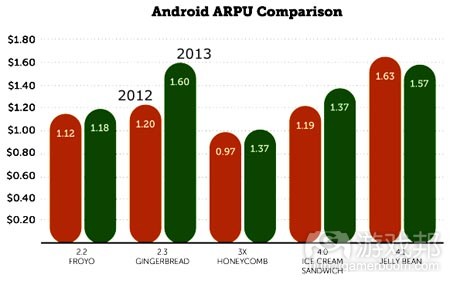
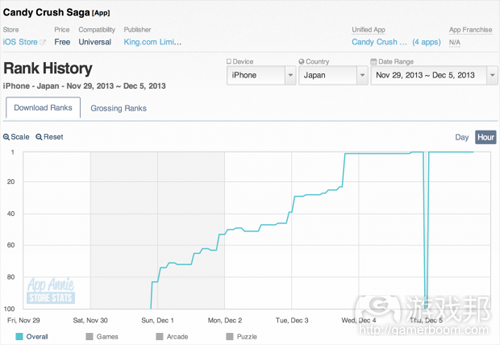

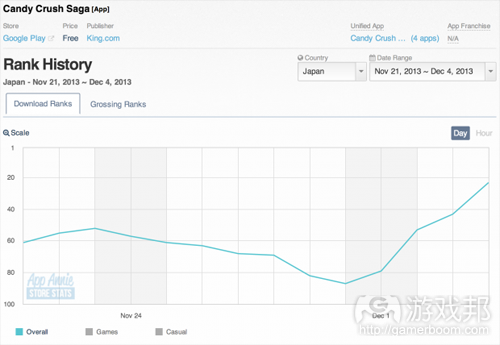
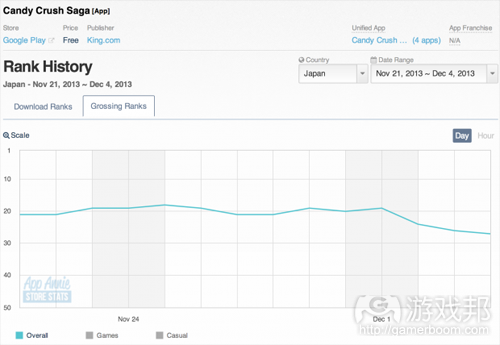
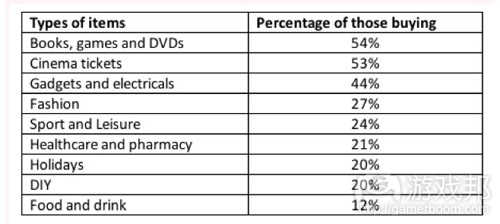
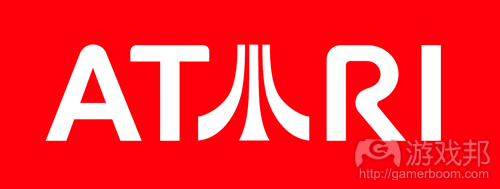














 闽公网安备35020302001549号
闽公网安备35020302001549号